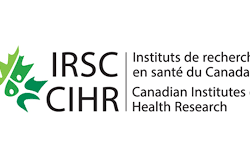Prostate Cancer Awareness Month
This #ProstateCancerAwarenessMonth, we’re sharing insights from recent studies from researchers across Canada. Today, we’re sharing findings from Sheida Majouni, PhD candidate from Dalhousie University! In 2022, Majouni and colleagues applied machine learning to arsenic species and metal profiles of toenails from Atlantic PATH. They aimed to understand environmental metal’s potential to produce disease, specifically prostate cancer: https://bit.ly/3eVjUMK “Artificial intelligence has a unique potential to revolutionize population health,” says Dr. Syed Sibte Raza Abidi, Professor in the Faculty of Computer Science at Dalhousie University. “By discovering environmental risk factors’ influence on chronic disease risk with risk prediction models, it is a pivotal tool for mitigating the risk of chronic disease onset.” This work is being expanded with the support of a New Frontiers in Research Fund (NFRF) Exploration grant. Team members include Dr. Syed Sibte Raza Abidi (Nominated Principal Investigator), Dr. Jong Sung Kim (Co-Principal Investigator), Dr. Ellen Sweeney (Co-Investigator), Dr. Gabriela Ilie (Co-Investigator), Dr. Trevor Dummer (Co-Investigator), Dr. Taehyun Roh (Collaborator), Dr. Nathalie Saint-Jacques (Collaborator), and Jason Hicks (Collaborator). Watch this space for future findings! Last Updated on September 28, 2022



